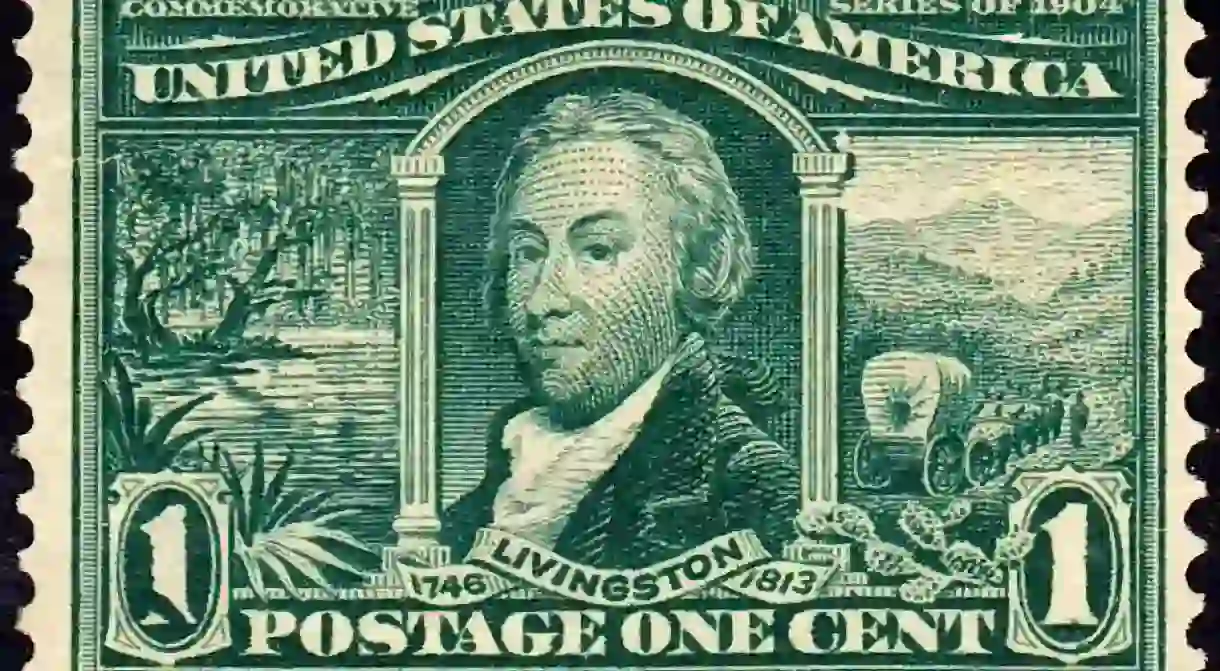A History Of Robert Livingston: The NY-Born Diplomat Who Purchased Louisiana

Cuture Trip delves into the story of New York statesman Robert Livingston, whose gamble yielded the Louisiana Purchase.
In 1799, Napoleon Bonaparte seized control of France. He immediately began to re-establish and exponentially expand his nation’s empire, thereby becoming the most feared man in the world. A large swath of land known as the Louisiana Territory was currently controlled by Spain, but France was forced to cede it at the conclusion of the French and Indian War. However, Spain’s King Charles IV, whose empire was in rapid decline, had neither the finances, strength, nor the wherewithal to develop it. Thus Spain was willing to ‘retrocede’ the territory, along with its vital port city of New Orleans, back to France.

Napoleon, with his reinvigorated military, represented a grave threat to the newly formed United States of America, and Jefferson’s plans to form what he coined an ‘Empire of Liberty’ were in jeopardy. President Jefferson understood this dire possibility when he said, ‘The day that France takes possession of New Orleans…we must marry ourselves to the British fleet and nation.” Robert Livingston, already in Paris, was instructed to immediately enter into negotiations with the French.
Robert Livingston was a New York-born aristocrat, lawyer, and politician who had what the historian and author of American Creation, Joseph J. Ellis, called “a knack for showing up where history was happening.” Livingston was one of the Committee of Five who wrote the Declaration of Independence, administered the oath of office for George Washington in New York City, and was now in position to negotiate the largest and most lucrative land deal in American history.

Napoleon’s plan was to seize the territory and New Orleans to prevent America’s’ expansion westward, to establish an area for exile of for criminals and debtors, and to use the mouth of the Mississippi as a commerce point to the sugar colony in Santo Domingo (Haiti). For this plan to succeed, the French needed to first enter into a secret treaty with Spain for the purchase of the territory, then squash a rebellion in Santo Domingo led by ex-slave Toussaint L’Ouverture. This would allow Napoleon to gain a foothold before American forces could mobilize. Charles Leclerc was dispatched to Haiti along with 20,000 troops to first befriend Toussaint. Then as an example to all, L’Ouverture was captured and sent to France to die in prison.

While Robert Livingston was relatively inexperienced in foreign affairs, he was a shrewd businessman and a veteran of often equally visceral New York politics. The French tipped their hand when a mid-level Spanish functionary in New Orleans attempted to close the port city to American ships. Livingston had to act on two fronts. Using messages transmitted through French diplomat Samuel DuPont, Jefferson informed Livingston to first expose France’s secret treaty with Spain. Then using an extremely risky yet ingenious political ruse, Livingston began leaking to the French press that Napoleon’s plot to occupy the Louisiana Territory would be met by the United States with a fierce military response.
Several members of the French Parliament, including famed diplomat Francois de Barbé-Marbois, and members of the French press, were opposed to Napoleon’s colonial aspirations. As a result of both the resilience of the Haitian uprising and yellow fever, Leclerc’s forces faced a disastrous defeat. Livingston continued to seize upon these opportunities to further inflame the French media, citing that a defeat in Haiti would mean certain defeat against the Americans. Thomas Jefferson quickly dispatched Secretary of State James Madison to assist in negotiations. However, Livingston’s diplomatic prowess was noted even by his chief French rival Talleyrand when he called him the “animal that could not be trapped because he kept himself out of range.”

After a bloody rebellion and an outbreak of yellow fever within French ranks, Leclerc informed Napoleon that all was lost in the Caribbean. Robert Livingston’s ability to control the French media and outmaneuver Talleyrand forced Napoleon to offer the territory for purchase. Livingston, acting without authority from President Jefferson or Congress, agreed to the sale in April 1803 for a grand total of $15 million (roughly 4 cents a square mile) on the day Madison arrived in Paris. Robert Livingston was heralded as a diplomatic hero, and on July 3, 1803, the decision was celebrated in Washington D.C. In Place d’Armes in New Orleans, the French tricolors were lowered while the American flag was raised.













